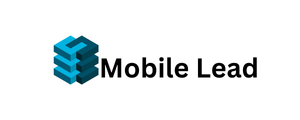A follow-up email is sent after an initial interaction to remind customers to complete an action, ask for feedback, or continue a conversation. But getting your follow-up emails noticed is challenging and requires a strategic approach.
What is a Follow-up Email?
A follow-up email is a message sent after an initial communication, such as a job interview, meeting, chat, or sales pitch.
For example, if you recently linkedradar linkedin automation tool met with a company executive, you can send a follow-up email to thank them for their time.
Follow-up emails are often used in business environments, but can also be used in any situation where you need to remind someone for an email response.
Critical Aspects of Follow-Up Emails
Follow-up emails are usually short and professional, and their purpose can vary depending on your need to start a chain message.
Below is a list of critical things to how does whatsapp api offer customer support? keep in mind regarding follow-up emails:
- Clarity: Make sure your follow-up email is clear in purpose and concisely states key points.
- Timing: Send the follow-up message immediately while the initial conversation remains fresh in the recipient’s mind.
- Personalization: Personalize the email with the recipient’s name and specific details.
- Relevance: Keep content relevant to the previous interaction. Avoid introducing a new topic that could confuse buyers.
- Add value: Add value to your follow-up email by providing additional information or updates.
- CTA: Clearly state what you want buyers to do next.
Keep the tone of your follow-up emails professional and courteous, and include key points in the introduction so recipients quickly recognize the message.
Why Are Follow-Up Emails Important?
Staying in touch with someone consumer data you’ve recently met or worked with demonstrates professionalism and a willingness to stay in touch, which is why it’s so important in business.
Below you can find details on why follow-up emails are important:
1. Increases response rates
A well-crafted follow-up email acts as a gentle reminder to recipients to take action.
2. It makes you feel like you are showing genuine interest.
Sending a follow-up message shows that you are genuinely interest and not just sending mass emails for higher conversions.
3. It helps build relationships
A follow-up email shows that you care about the discussion and are open to further comments.
4. Helps alleviate potential concerns
A follow-up email allows you to address concerns about previous interactions and provide additional information. More importantly, following up opens doors to other opportunities and keeps you top of mind with buyers.
